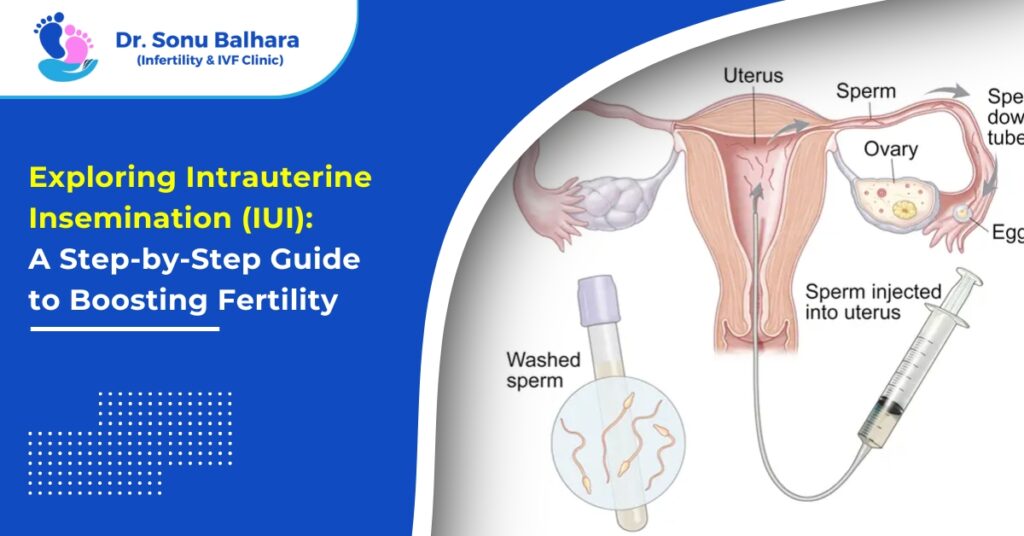Introduction
Intrauterine insemination (IUI) is a common and relatively simple fertility treatment that offers hope for couples and individuals looking to conceive. It involves placing sperm directly into the uterus around the time of ovulation, which increases the chances of fertilization. For those with specific types of fertility challenges, IUI can be an effective option. In this article, we’ll dive into how IUI works, who it’s best suited for, and what to expect from the procedure.
What is Intrauterine Insemination (IUI)?
IUI is a minimally invasive fertility treatment designed to assist the fertilization process by placing washed sperm directly into the uterus, increasing the likelihood of the sperm reaching and fertilizing the egg. IUI is often considered a first-line treatment for individuals or couples dealing with infertility, particularly when more straightforward methods have not been successful.
How Does IUI Work?
IUI treatment involves several stages, each important for optimizing the timing and success of conception. Here’s a breakdown of the typical process:
- Ovarian Stimulation (if necessary): Depending on the situation, medications may be given to stimulate the ovaries to produce one or more eggs, which can improve the chances of fertilization. The progress of ovulation is closely monitored using ultrasound and hormone testing.
- Sperm Collection and Preparation: A sperm sample is provided by the partner or a donor. This sample is then “washed” in a lab, a process that concentrates the healthiest and most motile sperm while removing impurities and slower sperm.
- IUI Procedure: During ovulation, the prepared sperm sample is inserted directly into the uterus using a thin, flexible catheter. By bypassing the cervix, the sperm has a shorter distance to travel to reach the egg.
- Post-Procedure Monitoring: Patients are usually advised to wait for about two weeks before taking a pregnancy test. During this time, they are encouraged to monitor for early pregnancy symptoms and maintain a healthy lifestyle to support potential implantation.
Who is IUI Best Suited For?
IUI can be helpful for people facing various fertility challenges, making it suitable for:
– Unexplained Infertility: For couples with no identifiable cause of infertility, IUI is often one of the first treatments recommended.
– Mild Male Factor Infertility: If sperm count, motility, or morphology (shape) is slightly lower than normal, IUI can help by delivering the healthiest sperm directly to the uterus.
– Cervical Factor Infertility: In cases where the cervical mucus may hinder sperm movement, IUI bypasses the cervix entirely, increasing the chances of fertilization.
– Ovulation Issues: IUI combined with ovulation-inducing medications can assist in cases of irregular or absent ovulation.
– Donor Sperm Use: Single individuals or same-sex couples using donor sperm can benefit from IUI as a relatively simple and effective fertility treatment.
Benefits of IUI
IUI offers several advantages as a fertility treatment:
– Less Invasive and Cost-Effective: Compared to other fertility treatments, such as in vitro fertilization (IVF), IUI is minimally invasive and generally more affordable.
– Short Procedure and Recovery Time: The IUI procedure itself is quick and painless, with minimal downtime afterward.
– Good Success Rates for Certain Conditions: IUI can be highly effective for couples facing specific fertility challenges, especially when combined with ovulation-inducing medication.
Success Rates and Considerations
Success rates for IUI can vary based on several factors, including the age of the patient, the use of fertility medications, and the underlying cause of infertility. Generally, the success rate per IUI cycle ranges between 10-20%, with rates often higher for patients under 35 and for those using IUI for mild male factor infertility or cervical issues. Some patients may require multiple cycles to achieve pregnancy, and it’s important to approach treatment with realistic expectations.
What to Expect During and After the Procedure
The IUI process is usually simple and painless, with most patients able to resume normal activities shortly afterward. It is normal to feel a bit anxious during the two-week wait following IUI, as this is the time to see if implantation occurs. Staying relaxed and maintaining a healthy lifestyle during this time can support early pregnancy if it takes place.
Is IUI Right for You?
The decision to undergo IUI is personal and often guided by a fertility specialist’s recommendations based on specific fertility challenges and goals. For many, IUI is a promising option that balances effectiveness with a straightforward approach.
Conclusion
Intrauterine insemination (IUI) offers a practical and affordable way for many individuals and couples to boost their chances of conception. With minimal invasiveness and a proven track record for certain fertility conditions, IUI provides hope to those looking to start or grow their family. For those considering IUI, consulting with a fertility expert, like Dr. Sonu Balhara, can offer tailored guidance and support throughout the fertility journey.

